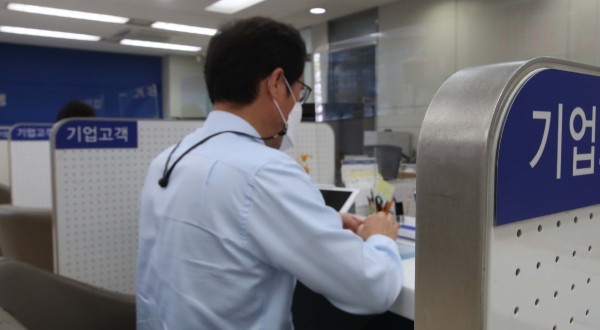
The amount of loans that South Korean small and medium-sized enterprises (SMEs) failed to repay on time due to the prolonged economic downturn hit its highest level in over 20 years in 2024, leading guarantee institutions to step in and cover the debt on their behalf to banks.
According to data released by Korea Technology Finance Corp. (KOTEC) on Wednesday, the total amount KOTEC repaid on behalf of SMEs that received bank loans under its guarantee but failed to repay due to economic hardship reached 1.32 trillion won ($960.65 million) in 2024.
As the government scaled back its special financial support measures introduced during the COVID-19 pandemic, the amount of substitute repayments rose from 667.8 billion won in 2022 to 1.11 trillion won in 2023.
KOTEC’s substitute repayments already amounted to 680.6 billion won from January to May 2025 alone, suggesting that the annual total is likely to exceed the 2024 figure. The institution’s substitute repayment rate surged from 1.87 percent in 2022 to 3.43 percent in 2023 to hit 4.06 percent in 2024 - the highest level since the global financial crisis in 2007, when it stood at 4.13 percent.
“The prolonged triple crisis of high interest rates, high inflation, and high exchange rates raised SME loan delinquency and corporate insolvency rates, resulting in increased substitute repayments,” a KOTEC official said.
Noh Min-sun, a research fellow at the Korea SMEs & Startups Institute (KOSI), also noted that “the expansion of substitute repayments reflects many SMEs and small business owners took out loans during the COVID-19 pandemic but have yet to regain the financial capacity to repay them.”
“Small businesses remain vulnerable to external factors such as U.S. tariff policies and exchange rate fluctuations, making it unlikely that the situation will improve in 2025,” he added.
Source: https://pulse.mk.co.kr/news/english/11364394

